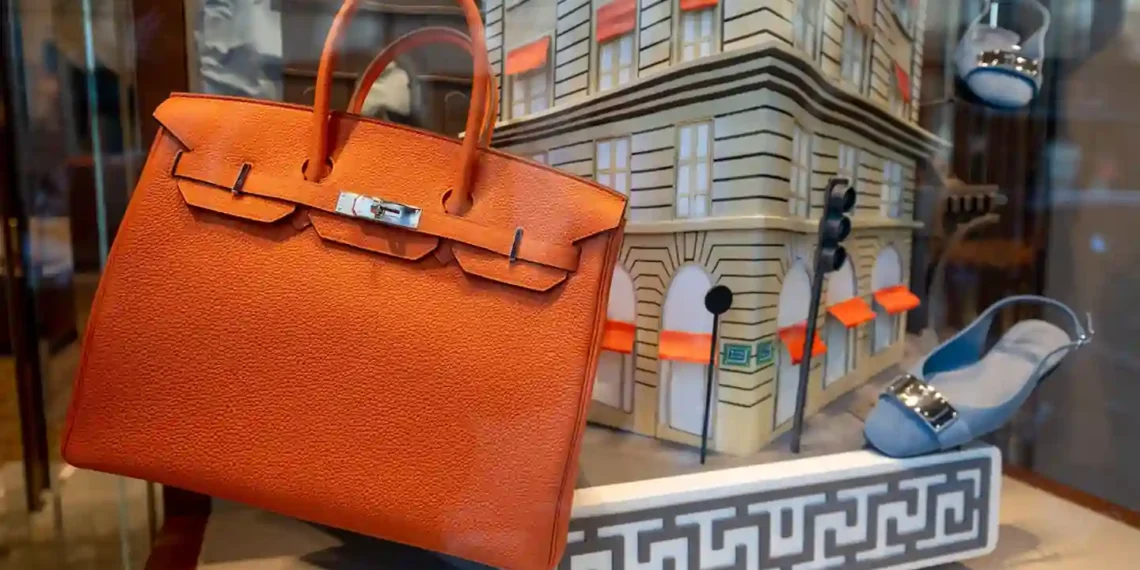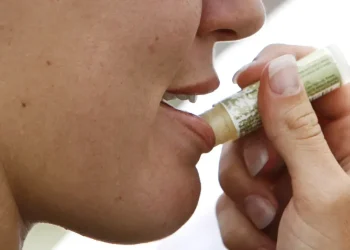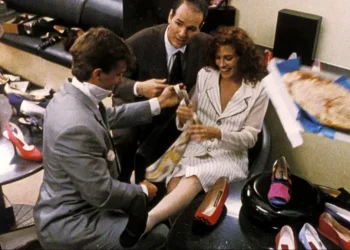Hermès Surpasses LVMH to Become the World’s Most Valuable Luxury Brand
In a stunning shift in the luxury goods market, Hermès has overtaken LVMH to become the world’s most valuable luxury company. The move came after LVMH, the parent company of high-end brands like Louis Vuitton, Dior, Tiffany & Co., and Sephora, reported disappointing first-quarter sales, which sparked investor concerns.
LVMH’s latest earnings report missed analyst expectations, with a 3% decline in first-quarter sales—far below the anticipated 2% growth. The slowdown in sales was attributed to weaker demand in key markets, including the U.S., where shoppers reduced their purchases of beauty products and cognac, and China, where sales also remained sluggish. As a result, LVMH’s stock dropped by 7%, reducing its market capitalization to €246 billion, just behind Hermès, which now stands at €247 billion.
Jelena Sokolova, a senior equity analyst at Morningstar, highlighted that LVMH’s large exposure to the lower end of the luxury market has made it more vulnerable to market downturns. In contrast, Hermès, with its exclusive focus on high-end products like the $10,000 Birkin and Kelly handbags, has cultivated a wealthier client base that is more resilient to economic shifts. This shift in market valuation is seen as indicative of a broader post-pandemic trend, where wealthier consumers are becoming increasingly selective in their luxury purchases.
Hermès has long been known for its conservative production strategy, limiting its annual growth to around 6-7%. This tight control on supply ensures that demand for its products remains high, helping the brand weather economic downturns more effectively than its competitors. Flavio Cereda, who manages GAM’s Luxury Brands investment strategy, believes that the growth in LVMH’s fashion labels, particularly in the middle-range luxury sector, could be a point of concern. While LVMH has gained market share post-pandemic, the focus on more affordable luxury goods might be a risk in a more challenging economic environment.
LVMH’s recent performance is not isolated. Other luxury brands, including Kering (owner of Gucci), Richemont (which owns Cartier), and Prada, also experienced share declines, with LVMH leading the pack at a 7.2% drop. Analysts point to trade tensions, particularly the fallout from U.S. President Donald Trump’s tariff announcements, as key factors contributing to the uncertainty in the luxury market.
The luxury sector was hoping for a rebound in 2024, but the latest figures show that a recovery may take longer than expected. LVMH’s key fashion and leather goods business, which includes Louis Vuitton and Dior, saw a 5% sales decline, highlighting the tough road ahead. According to RBC analyst Piral Dadhania, the current trading environment for luxury brands is “difficult,” and he has revised his sales forecast for LVMH this year from growth to flat sales.
With concerns of a global recession looming, the luxury industry faces a challenging year. Shares of companies like LVMH, Kering, and Burberry have fallen 14% since the end of March, while Richemont and Hermès saw declines of 13% and 5%, respectively. Bernstein analysts have lowered their sales forecast for the luxury sector, predicting a 2% decline this year, which would mark the industry’s longest downturn in over two decades.
As Hermès ascends to the top spot, it’s clear that the luxury market is undergoing a transformation. The industry’s biggest players will need to navigate economic uncertainties and shifting consumer preferences to remain competitive. The next chapter in this battle for luxury dominance will be a pivotal one for all involved.
This article was rewritten by JournosNews.com based on verified reporting from trusted sources. The content has been independently reviewed, fact-checked, and edited for accuracy, neutrality, tone, and global readability in accordance with Google News and AdSense standards.
All opinions, quotes, or statements from contributors, experts, or sourced organizations do not necessarily reflect the views of JournosNews.com. JournosNews.com maintains full editorial independence from any external funders, sponsors, or organizations.
Stay informed with JournosNews.com — your trusted source for verified global reporting and in-depth analysis. Follow us on Google News, BlueSky, and X for real-time updates.













